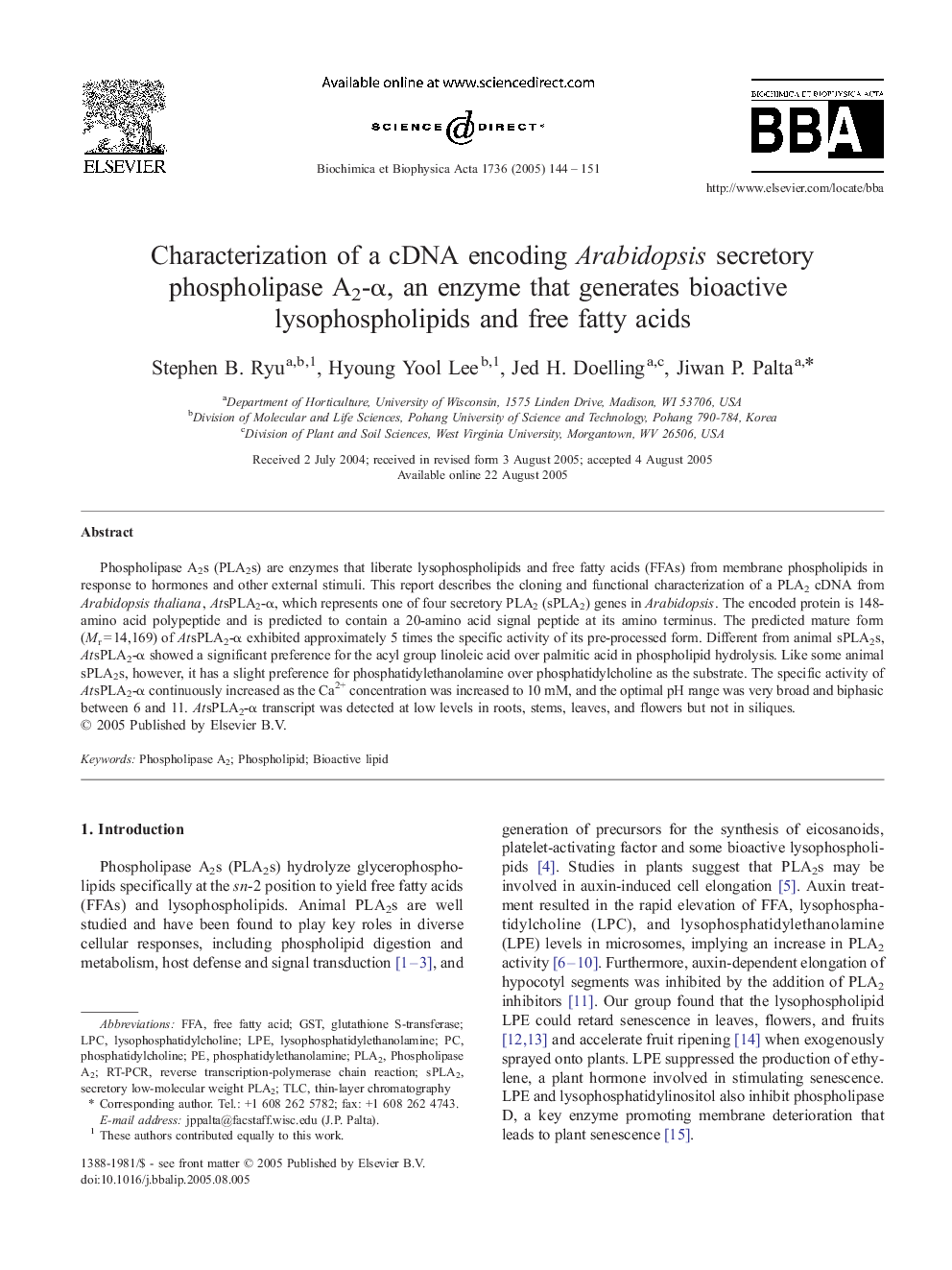| Article ID | Journal | Published Year | Pages | File Type |
|---|---|---|---|---|
| 9886514 | Biochimica et Biophysica Acta (BBA) - Molecular and Cell Biology of Lipids | 2005 | 8 Pages |
Abstract
Phospholipase A2s (PLA2s) are enzymes that liberate lysophospholipids and free fatty acids (FFAs) from membrane phospholipids in response to hormones and other external stimuli. This report describes the cloning and functional characterization of a PLA2 cDNA from Arabidopsis thaliana, AtsPLA2-α, which represents one of four secretory PLA2 (sPLA2) genes in Arabidopsis. The encoded protein is 148-amino acid polypeptide and is predicted to contain a 20-amino acid signal peptide at its amino terminus. The predicted mature form (Mr = 14,169) of AtsPLA2-α exhibited approximately 5 times the specific activity of its pre-processed form. Different from animal sPLA2s, AtsPLA2-α showed a significant preference for the acyl group linoleic acid over palmitic acid in phospholipid hydrolysis. Like some animal sPLA2s, however, it has a slight preference for phosphatidylethanolamine over phosphatidylcholine as the substrate. The specific activity of AtsPLA2-α continuously increased as the Ca2+ concentration was increased to 10 mM, and the optimal pH range was very broad and biphasic between 6 and 11. AtsPLA2-α transcript was detected at low levels in roots, stems, leaves, and flowers but not in siliques.
Keywords
Related Topics
Life Sciences
Biochemistry, Genetics and Molecular Biology
Biochemistry
Authors
Stephen B. Ryu, Hyoung Yool Lee, Jed H. Doelling, Jiwan P. Palta,
